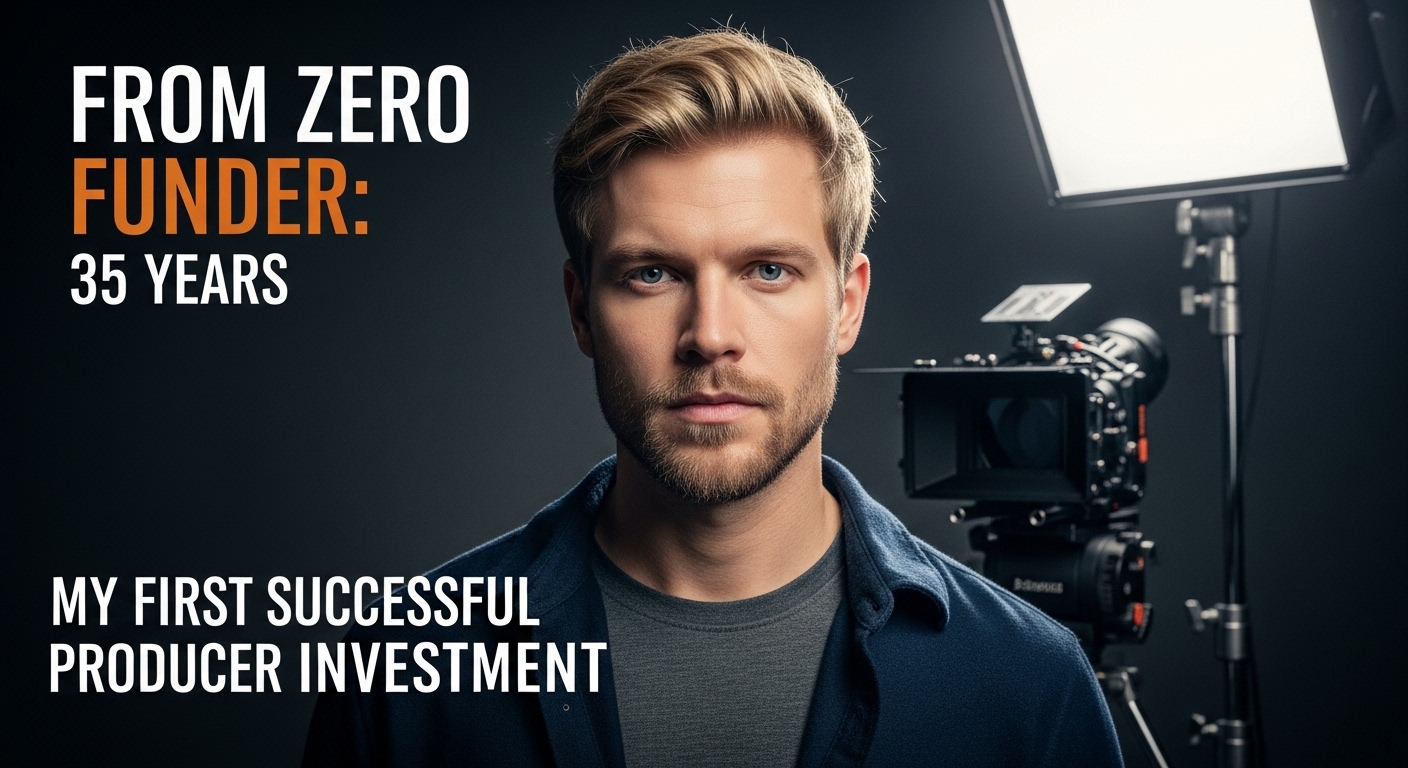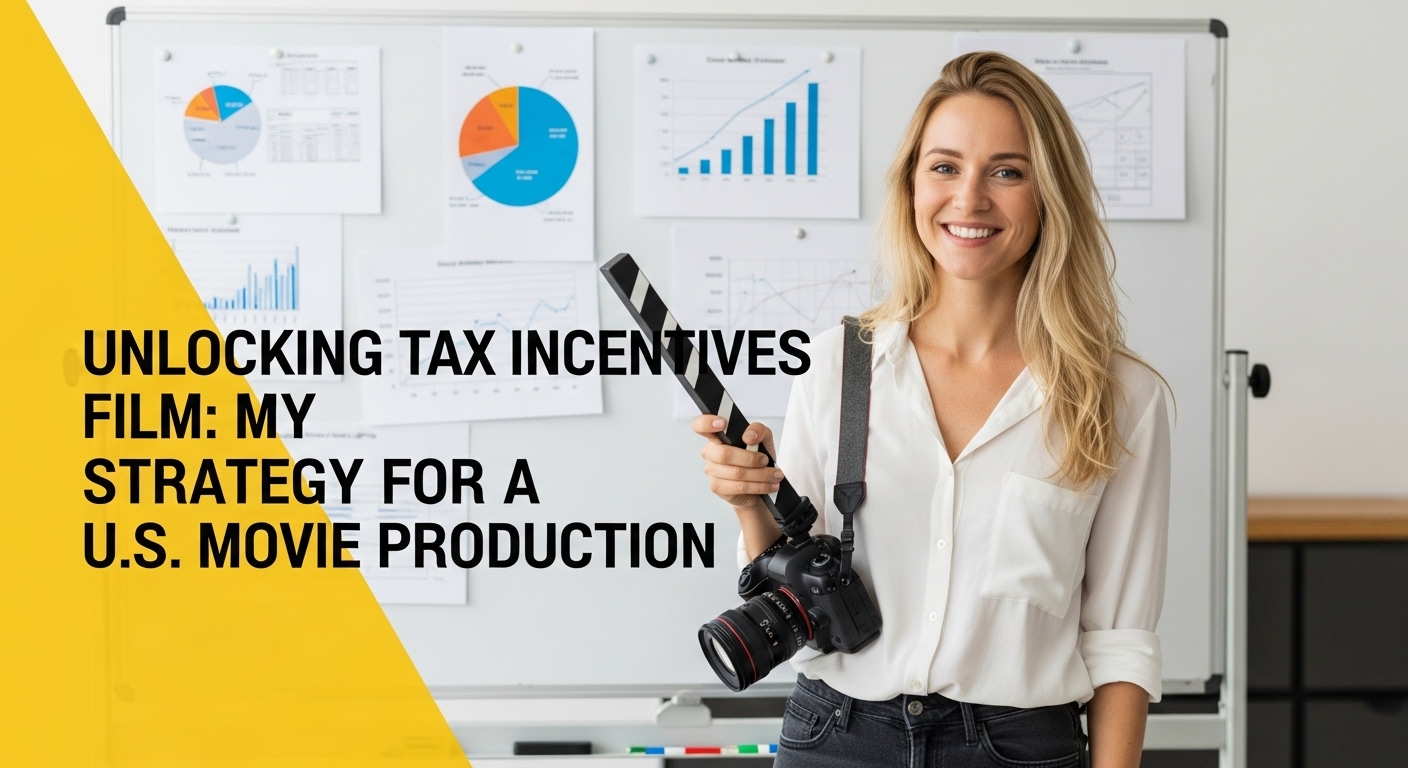Film festivals are more than just a showcase of cinematic art; they are bustling marketplaces brimming with distribution opportunities.
For independent filmmakers, these vibrant gatherings can drastically shift the trajectory of their projects. Festivals like Sundance, Cannes, and Toronto serve as launchpads—not only for films but for careers.
Navigating this complex landscape can seem daunting, yet understanding its intricacies is vital for any producer eager to make an impact.
In this article, we’ll explore how you can maximize your film festival experience to connect with distributors and industry professionals. From crafting a winning pitch to strategically selecting festivals that fit your genre, we’ll break down essential tactics to increase your visibility.
Whether you’re a seasoned producer or a student just starting out, insights into building connections and setting clear distribution goals will empower you to take charge of your film’s journey. Get ready to dive deep into the world of film festivals—where opportunities await at every corner!
Understanding Film Festival Strategies.
Navigating the film festival circuit can be a daunting task, especially when considering the myriad of festivals available. The first essential step is researching which festivals align with your film’s genre and theme.
For instance, if you have created a thought-provoking documentary, consider targeting niche festivals that focus specifically on documentaries, such as the Hot Docs Canadian International Documentary Festival or the Tribeca Film Festival.
On the other hand, if your work is a gripping thriller, larger competitions like Sundance may provide broader exposure while still attracting genre enthusiasts.
Understanding where your film fits into the festival landscape not only maximizes your chances of selection but also positions you to connect with an audience genuinely interested in your narrative style.
Creating a tailored submission strategy is crucial for standing out in packed submissions pools. Rather than applying to every festival indiscriminately, allocate time to develop specific pitches and submit materials that resonate with each festival’s unique ethos and audience demographics.
This might mean personalizing cover letters or adjusting promotional videos to emphasize elements anticipated by each festival committee.
Additionally, consider early bird deadlines; many festivals offer reduced entry fees during this period, allowing filmmakers to save money while securing their place in the lineup.

Lastly, leverage the reputation of recognized film festivals for better exposure once accepted. Securing a premier spot at an acclaimed event—such as Cannes or Toronto—can serve as a significant endorsement of both your work and its market viability.
If selected for one of these prestigious platforms, Seize this opportunity not just to showcase your film but also to create buzz around it through press releases and social media campaigns that highlight participation in the fest.
Fostering dialogue within these environments opens doors for potential deals—even films in development sometimes find traction simply through network interactions born from successful festival outings!
By understanding how festivals operate and strategically approaching them, you position yourself effectively for distribution opportunities.
Building Connections with Industry Professionals.
Networking is a crucial element for independent producers seeking distribution opportunities at film festivals. One practical tip is to approach industry professionals proactively, whether during panel discussions, after screening Q&A sessions, or even at festival parties.
It’s essential to be genuinely interested in their work and come prepared with thoughtful questions about their projects or insights into the industry.
For instance, if you meet a distributor who has shown interest in documentaries, discuss recent trends or notable films they’ve worked on that might align with your project.
This not only showcases your passion but also positions you as someone knowledgeable and engaged in the filmmaking landscape.
In today’s digital age, social media serves as an invaluable tool for outreach and relationship-building within the film community. Prior to attending the festival, enhance your online presence by joining relevant groups on platforms like LinkedIn or Facebook focused on filmmakers and distributors.
Share updates about your film’s journey and engage in conversations about others’ works; genuine interactions can lead to valuable connections when you finally meet in person at the festival.
Use hashtags related to the event throughout its duration—by tweeting your thoughts on panels or sharing behind-the-scenes photos—you demonstrate your active participation while attracting potential collaborators who share similar interests.

After making important connections during the festival, effective follow-up is key to nurturing those new relationships.
A simple thank-you email expressing appreciation for their time can go a long way, especially if you reference a specific conversation you had together; this shows attentiveness and helps keep both of you fresh in each other’s minds.
Consider offering value yourself by sending links to articles or resources discussed during your meeting that could benefit them professionally.
Furthermore, establishing regular communication through occasional check-ins or updates on your project progress keeps lines open for future collaborations while reminding contacts of your dedication and growth as a filmmaker.
To successfully navigate the complex world of film festivals, building authentic relationships with industry professionals must take center stage alongside understanding strategies for submissions and presentations.
Approach conferences armed with confidence, openness, and willingness to connect—not just for personal gain but towards mutual growth within this collaborative art form we cherish so dearly.
Crafting a Winning Pitch.
An effective pitch is the cornerstone of securing distribution opportunities at film festivals. To captivate potential distributors and audiences alike, filmmakers must hone several essential elements in their presentation.
Start strong with a compelling hook that summarizes your film’s core message—think of it as the elevator pitch but dialed up to resonate emotionally and intellectually.
An example of this might be a gripping one-liner like, “What if a true crime documentary uncovers secrets that threaten an entire community?” This opening draws people in, immediately piquing their curiosity about both plot and implications.
Demonstrating your film’s unique value proposition is key to standing out in a crowded festival scene. Identify not just what makes your project different, but how it resonates culturally or socially.
If your indie drama explores topics often overlooked by mainstream cinema—such as mental health within marginalized communities—highlight this aspect boldly in your pitch. Use testimonials or anecdotal evidence during conversations to illustrate why audiences crave stories like yours.
Producers such as Ava DuVernay have successfully utilized this strategy, often emphasizing diversity not only on-screen but also during filming—factors that appeal strongly to conscious buyers looking for fresh narratives.

Moreover, it’s vital to prepare for the varied types of pitches you may encounter at festivals. Some distributors might favor concise, formal presentations while others may thrive in casual dialogue over coffee.
Understanding these dynamics allows you to tailor your approach effectively on-the-fly; don’t shy away from switching gears when necessary!
Practice pitching your film in both formats: create a full-length version filled with rich details for formal meetings, while having an abbreviated version ready for spontaneous opportunities—a casual chat can sometimes lead down the path toward invaluable connections.
In conclusion, crafting a winning pitch goes beyond just summarizing your story; it encompasses understanding its unique place within the industry and deftly adapting to various pitching scenarios.
By focusing on these key strategies, producers can increase their chances of capturing attention and interest throughout the fast-paced atmosphere of film festivals.
Managing Your Festival Presence.
In the dynamic world of film festivals, effectively managing your presence can make all the difference in attracting potential distribution partners. Branding is not merely about having a logo; it encompasses the entire experience you create around your film.
When filmmakers establish a strong visual identity, coupled with a cohesive marketing strategy, they help audiences and industry professionals remember their work long after the last screening.
For instance, consider indie favorite “The Florida Project,” which skillfully used vibrant posters and trailers that encapsulated its essence—making it memorable among festival-goers.
Marketing materials play a crucial role during this time. Having an eye-catching press kit is essential—it serves as both an informative tool for journalists and an attractive package for potential distributors.
Your press kit should include high-quality stills from the film, engaging cast bios, and production notes that highlight your film’s unique aspects.
A professional poster that captures the theme of your movie can also draw attention on crowded festival floors and social media feeds alike. Engaging videos or quick clips can enhance this effort further by providing tantalizing glimpses into what viewers might expect.
Engagement doesn’t stop at traditional branding and promotional materials; how you interact with audiences during Q&A sessions or panel discussions is equally vital.

These moments are golden opportunities to convey your passion for the project while highlighting its unique value proposition—everything from thematic depth to innovative filming techniques.
By answering questions thoughtfully and inviting feedback, you foster a connection with attendees who may feel inclined to spread the word about your film once they leave the venue.
Lastly, consider leveraging digital platforms to maintain momentum even beyond physical festival grounds. Share quotes or insights garnered during panels on social media; using content from audience interactions reinforces authenticity and encourages ongoing conversations about your work.
Remember, building relationships takes time—each interaction is a step toward creating lasting impressions that could open doors long after the festival has ended.
Setting Distribution Goals Before Attending.
Before diving into the whirlwind of film festivals, it’s crucial for producers to define clear distribution goals. What do you hope to achieve from your participation?
Whether seeking international distribution, finding a local distributor, or merely gaining exposure for your work, having a specific objective can guide your festival experience.
For example, if you’re targeting digital platforms like Netflix or Hulu, combing through their festival screenings may be beneficial. Conversely, if traditional theatrical release is your aim, pursuing festivals known for their connections to theater chains could be more fruitful.
Establishing realistic expectations based on the size and reputation of the festival is likewise essential. A large festival like Sundance offers vast exposure but comes with stiff competition; smaller festivals may provide more intimate settings that foster deeper connections with industry professionals.
Understanding the landscape will help you frame what success looks like at each event—be it securing a deal with a distributor or simply meeting key players in your genre.
For instance, many independent filmmakers found invaluable relationships at niche festivals despite not receiving immediate offers—relationships that led to successful partnerships down the line.
Planning follow-up actions post-festival ensures that momentum isn’t lost after the spotlight fades. Consider developing a list of distributors and contacts made during the event and create a timeline for reaching out within a week of returning home.
Customizing follow-ups based on your conversations can make all the difference; if you discussed potential collaboration related to distribution strategies over coffee with an interested producer, referencing that exchange in your email will demonstrate genuine interest and professionalism.
By being proactive about connections made during the festival while keeping your established distribution goals in mind, you’ll dramatically increase your chances of sealing those coveted deals when back in the office!
Learning from Feedback and Industry Insights.
One of the most valuable aspects of attending film festivals is the opportunity to gather reactions and critiques from audiences. During screenings, producers can observe firsthand how viewers respond to their film’s themes, pacing, and overall impact.
This direct audience engagement can provide insights that box office numbers alone can’t deliver. For example, a filmmaker showcasing a romantic drama may notice specific scenes that elicit laughter or tears—critical indicators of emotional connection.
Rather than relying solely on preconceived notions about what works in storytelling, filmmakers should actively take note of these reactions; they can feed into both future projects and marketing strategies.
Additionally, film festivals often serve as hotspots for industry discourse where market trends are continuously evolving.
Producers have the unique chance to participate in panel discussions or workshops where current trends—such as the increasing preference for streaming content over theatrical releases—are analyzed in depth by industry experts.
Engaging with these conversations not only broadens a producer’s perspective but also helps them gauge how their work fits within changing market dynamics.
For instance, if attendees at multiple festivals express interest in films featuring strong female leads, this insight might encourage producers to pivot their upcoming projects towards more diverse narratives.
Reflecting on feedback should be an ongoing practice post-festival. Incorporating audience critiques into future programming can prove beneficial long after the festival lights dim.

Suppose a horror movie receives feedback indicating confusion regarding character motivations; that information could be incredibly useful when planning future story arcs or promotional material.
Filmmakers like Jordan Peele have revolutionized genres through critical reflection on viewer responses; each subsequent project layers nuanced understanding gleaned from previous endeavors.
In forming effective strategies for growth based on insights gathered at festivals, creators should view each screening as a stepping stone toward honing their craft rather than an endpoint.
By embracing constructive criticism and keeping an ear to the ground regarding industry shifts, independent filmmakers can significantly enhance their chances for success while staying true to their artistic vision.
Every lesson learned paves the way for richer storytelling in future projects—and ultimately opens doors wider than they ever imagined possible!
Navigating Distribution Deals After Festivals.
Once you’ve made your mark at a film festival, the next crucial step is navigating distribution deals that can help bring your project to a wider audience.
Understanding the different types of distribution options available is essential, as each has its own set of implications for revenue and creative control.
You might encounter traditional theatrical release deals, digital distribution agreements, or even hybrid models that combine both methods.
Independent filmmakers often opt for self-distribution through platforms like Amazon Prime or Vimeo On Demand, giving them more autonomy but requiring additional marketing efforts.
Being familiar with these avenues will empower you to make informed decisions that align with your vision for the film.
Negotiating contracts and terms effectively is vital in securing a deal that resonates with your needs and expectations. One key tip is to be prepared: have a clear understanding of what you’re willing to compromise on and where you draw the line.
For instance, if maintaining creative control over your edit is important to you, clearly articulate this during negotiations and ensure it’s documented in any agreement.
Additionally, consider bringing along an attorney who specializes in entertainment law; their expertise can provide invaluable insights on potential pitfalls and ensure that contract terms are fair while protecting your creative rights.
As a filmmaker, it’s equally important to protect your rights throughout this process. Ensure all agreements specify ownership of intellectual property and clarify revenue-sharing models so you’re not left in the dark down the line.
Consider including clauses addressing distribution duration and territories; after all, you don’t want your film locked into an unfavorable long-term contract without room for renegotiation later on.
By being proactive about safeguarding your rights from the outset, you’ll establish a strong foundation for successful partnerships moving forward.
Navigating distribution deals post-festival can be daunting yet rewarding if approached strategically. With industry connections bolstered by festival interactions combined with thoughtful preparation during negotiation processes, independent filmmakers can secure opportunities that elevate their work in meaningful ways—ultimately expanding their artistry beyond initial screenings into audiences worldwide.
Embracing Opportunities at Film Festivals.
In conclusion, navigating film festivals can be a game changer for producers seeking distribution opportunities. By researching the right festivals, building meaningful connections, and crafting a compelling pitch, you can elevate your chances of success.
Remember to manage your presence thoughtfully and set clear distribution goals from the outset. Feedback from screenings is invaluable, so embrace it as a tool for growth.
Take the initiative to pursue every opportunity that comes your way. The film festival landscape is filled with potential waiting to be unlocked. Your passion and determination will guide you through this exciting journey. Get out there, connect with others, and watch your hard work pay off!

I am a highly experienced film and media person who has a great deal to offer to like-minded individuals. Currently working on several exciting projects, I am a film and media practitioner for over a decade. I have achieved a great deal of success in my professional career.





